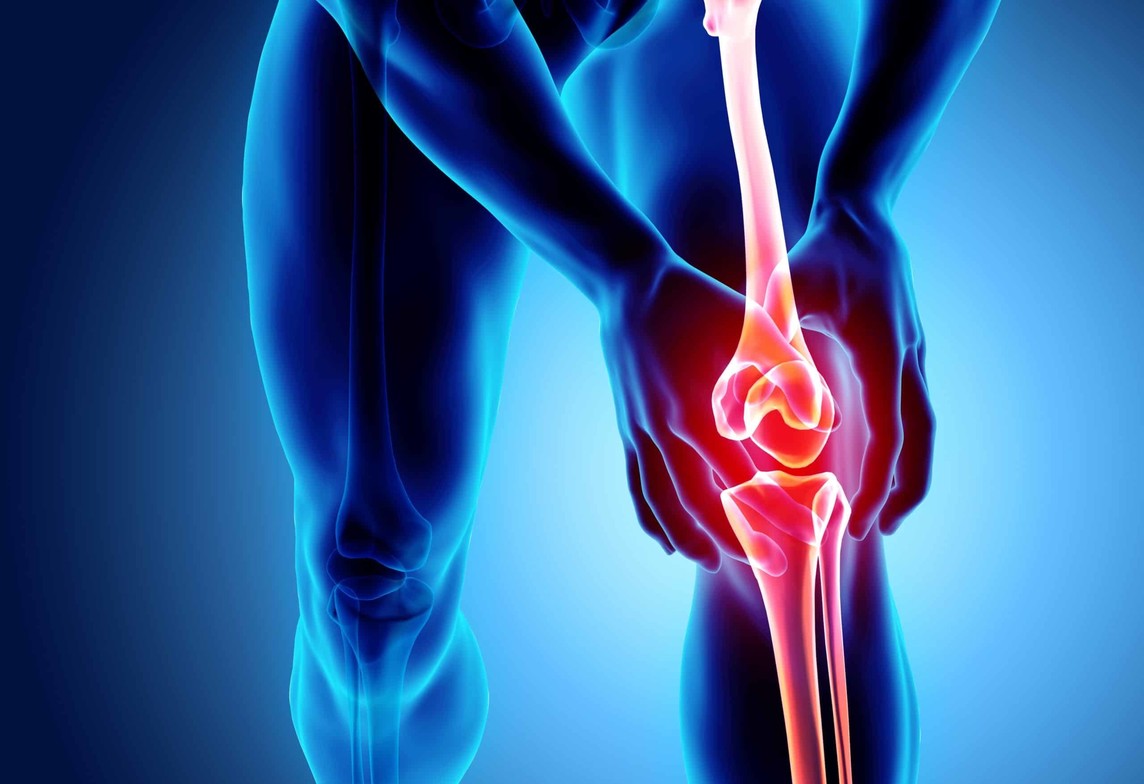
Knee pain can be a real nuisance, and when it comes in sharp, stabbing bursts that seem to come and go, it can be especially perplexing. If you’re dealing with this kind of knee pain, you're probably looking for answers on what might be causing it and how to find relief. Let’s break down some possible causes of sharp, intermittent knee pain and discuss strategies to manage it.
Understanding Sharp Stabbing Knee Pain
Sharp stabbing pain in the knee can feel alarming, especially when it appears unpredictably. Unlike dull or achy pain, sharp pain can be intense and sudden. Here’s what you need to know about potential causes:
Meniscus Tears and Knee Pain
The meniscus is a cartilage cushion in the knee that can be torn due to injury or degenerative changes. A tear often causes sharp pain, particularly during movements that involve twisting or turning. The pain might come and go depending on the activity and level of stress placed on the knee.
Personal anecdote: I once experienced a sharp, stabbing pain in my knee after a weekend of hiking. It was intermittent and seemed to come on when I twisted my knee. After seeing a doctor, I found out I had a small meniscus tear, which explained the sudden pain.
Patellar Tendonitis and Knee Pain
Patellar tendonitis, or “jumper’s knee,” is an inflammation of the tendon connecting the kneecap to the shinbone. This condition can cause sharp pain at the front of the knee, especially during activities like jumping or running. The pain might be intermittent, flaring up with certain movements and easing with rest.
What worked for me: When I dealt with patellar tendonitis, I found that avoiding high-impact activities and incorporating strengthening exercises for the quadriceps helped reduce the sharp pain significantly.
Bursitis and Knee Pain
Bursitis occurs when the small, fluid-filled sacs (bursae) that cushion the knee joint become inflamed. This condition can cause sharp pain, particularly when pressure is applied to the knee or during movements that aggravate the bursa.
How I managed it: Applying ice to the affected area and resting helped alleviate the pain when I had bursitis. A few days of avoiding activities that put pressure on my knee made a noticeable difference.
Ligament Injuries and Knee Pain
Injuries to the knee ligaments, such as the ACL (anterior cruciate ligament) or MCL (medial collateral ligament), can cause sharp, stabbing pain. These injuries are often associated with sports or sudden movements and can result in pain that comes and goes depending on activity and healing progress.
Personal tip: When I had a ligament sprain, physical therapy was crucial. It helped me rebuild strength and stability in the knee, which reduced the intermittent sharp pain over time.
Diagnosing the Problem of Sharp Knee Pain
If you’re dealing with sharp, stabbing knee pain, it’s important to get a proper diagnosis to determine the underlying cause. Here’s how you can approach it:
Consult a Healthcare Professional for Knee Pain
A healthcare provider can perform a thorough examination and may recommend imaging tests like X-rays or MRIs to identify the source of the pain. They will ask about your symptoms, medical history, and any activities that might have triggered the pain.
What helped me: I consulted with an orthopedic specialist who provided a clear diagnosis and treatment plan based on my specific symptoms and imaging results.
Keep a Knee Pain Diary
Tracking when the pain occurs, what activities exacerbate it, and any other symptoms can help your healthcare provider diagnose the issue more accurately. Note the intensity of the pain and any patterns you observe.
Personal tip: Keeping a diary of my knee pain helped my doctor understand the triggers and develop a more effective treatment plan tailored to my needs.
Managing and Relieving Sharp Knee Pain
Here are some strategies to manage and relieve sharp, intermittent knee pain:
Rest and Ice for Knee Pain
Resting the knee and applying ice can help reduce inflammation and alleviate sharp pain. Avoid activities that aggravate the pain, and give your knee time to heal.
Stretching and Strengthening Exercises for Knee Pain
Gentle stretching and strengthening exercises can help improve knee stability and reduce pain. Focus on exercises that target the muscles around the knee to provide better support and reduce strain.
What worked for me: Regularly performing stretching and strengthening exercises helped me manage and reduce knee pain. Consulting with a physical therapist provided guidance on the most effective exercises.
Use Supportive Devices for Knee Pain
Knee braces or supports can help stabilize the knee and reduce pain during activities. These devices can provide added support and alleviate some of the stress on the knee joint.
Modify Activities for Knee Pain
Avoid activities that trigger or worsen the pain. Modify your exercise routine or daily activities to reduce the strain on your knee and prevent further injury.
Over-the-Counter Pain Relief for Knee Pain
Nonsteroidal anti-inflammatory drugs (NSAIDs) like ibuprofen can help manage pain and inflammation. However, use them as directed and consult your healthcare provider if you need long-term pain relief.
When to Seek Further Help for Sharp Knee Pain
If your knee pain persists despite home treatment or if you experience significant swelling, instability, or difficulty moving the knee, it’s important to seek further medical attention. Persistent or worsening symptoms may require more in-depth evaluation and treatment.
Sharp, stabbing knee pain that comes and goes can be caused by a variety of issues, from meniscus tears to ligament injuries. Understanding the potential causes and seeking a proper diagnosis are key to finding effective relief. By consulting with healthcare professionals, keeping track of your symptoms, and implementing appropriate treatments, you can manage and reduce your knee pain. Remember, each person’s situation is unique, so finding the right approach for your knee pain might take some time and patience. Stay proactive and seek help when needed to get back to feeling your best.
Dr. Devin Stone
Contact Me


